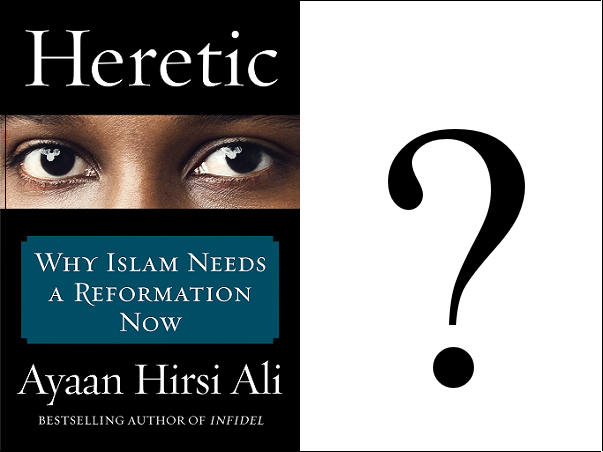[ by Charles Cameron — perhaps it’s not Wittenberg but Westphalia we should be praying for ]
.
**
Ayaan Hirsi Ali clearly believes we need an Islamic Reformation, and she’s not alone. That much Mehdi Hasan concedes in a Guardian piece titled Why Islam doesn’t need a reformation:
In recent months, cliched calls for reform of Islam, a 1,400-year-old faith, have intensified. “We need a Muslim reformation,” announced Newsweek. “Islam needs reformation from within,” said the Huffington Post. Following January’s massacre in Paris, the Financial Times nodded to those in the west who believe the secular Egyptian president, Abdel Fattah el-Sisi, “could emerge as the Martin Luther of the Muslim world”.
Hasan’s piece was evidently written in answer to the Guardian’s take on Hirsi Ali’s latest book, Heretic: Why Islam Needs a Reformation Now by Ayaan Hirsi Ali – review, and is subtitled, Those who are calling for a ‘Muslim Martin Luther’ should be careful what they wish for. His reason?
Martin Luther..
Luther did not merely nail 95 theses to the door of the Castle church in Wittenberg in 1517, denouncing clerical abuses within the Catholic church. He also demanded that German peasants revolting against their feudal overlords be “struck dead”, comparing them to “mad dogs”, and authored On the Jews and Their Lies in 1543, in which he referred to Jews as “the devil’s people” and called for the destruction of Jewish homes and synagogues.
**
On the other hand..
William Polk proposes what seems a powerful analogy in his December 2013 piece, Sayyid Qutub’s Fundamentalism and Abu Bakr Naji’s Jihadism:
I have described elsewhere the movements of “purification” inspired by such men as the Arabian Ahmad ibn Abdul Wahhab, the Algerian/Libyan Muhammad bin Ali al-Sanusi, the Sudanese Muhammad Ahmad al-Mahdi, the Iranian activist Jamal ad-Din al-Afghani and the Egyptian theologian Muhammad Abduh. In a fundamental aspect, their teachings and movements resembled those set off in northern Europe by Luther and Calvin. These Christians and Muslims shared a belief in the absolute authority of the unalterable word of God as set out in the original texts. Their task was to go back to discover the “pure” message and lead their followers to implement it. However much they differed, both the Muslims and the Protestants were in this sense salafis.
To my mind, that’s a far more persuasive analysis.
Perhaps what we’re seeing today is an Islamic version of the European Wars of Religion, following a Salafist “Reformation”?
In which case it might be time to work and pray for an Islamic Peace of Westphalia.



